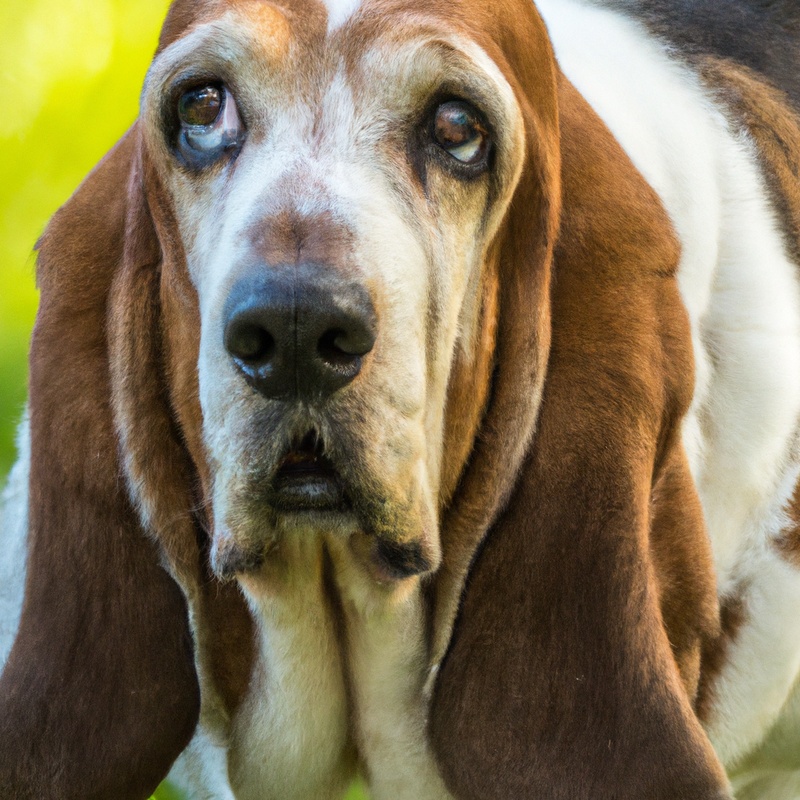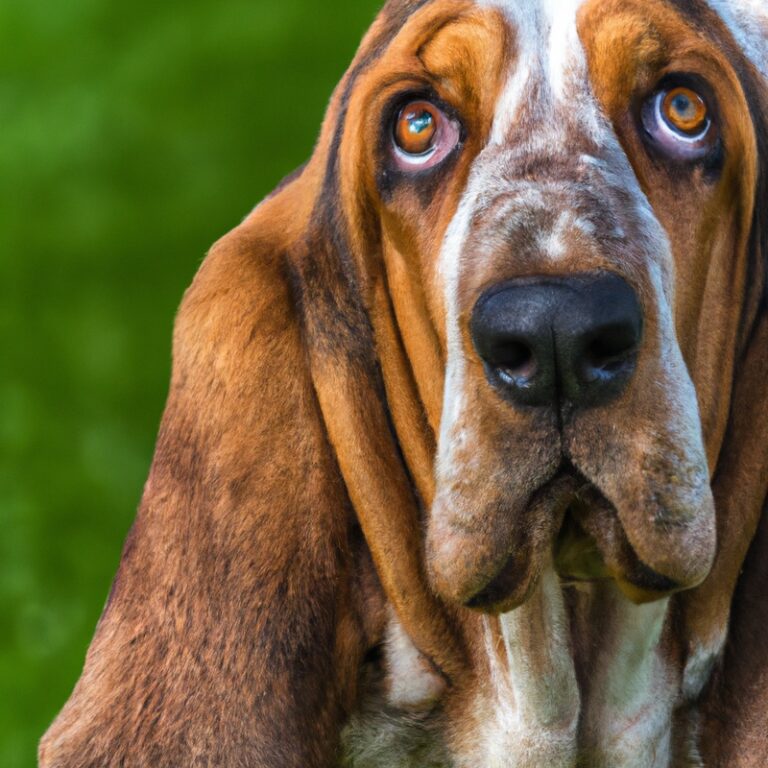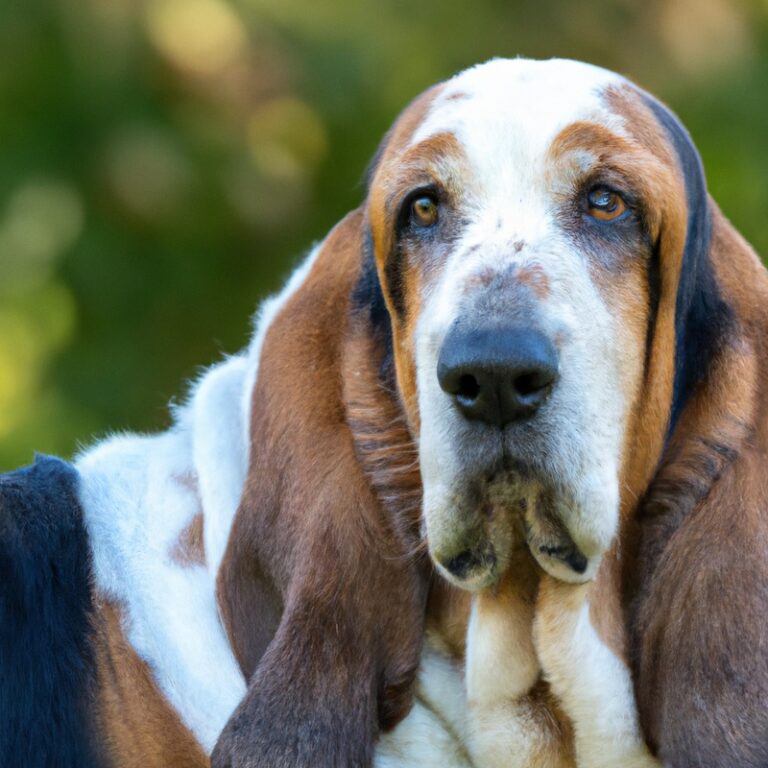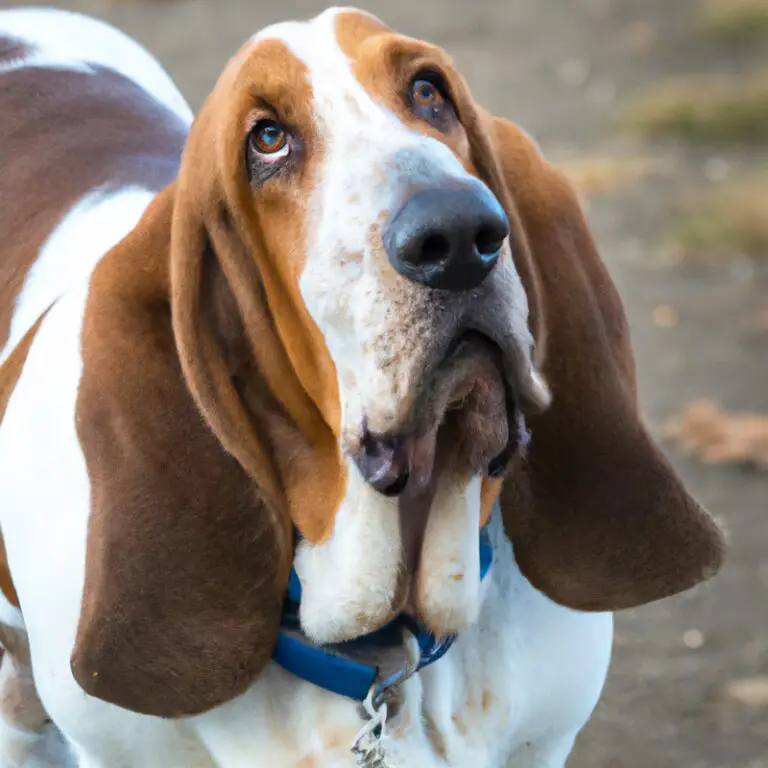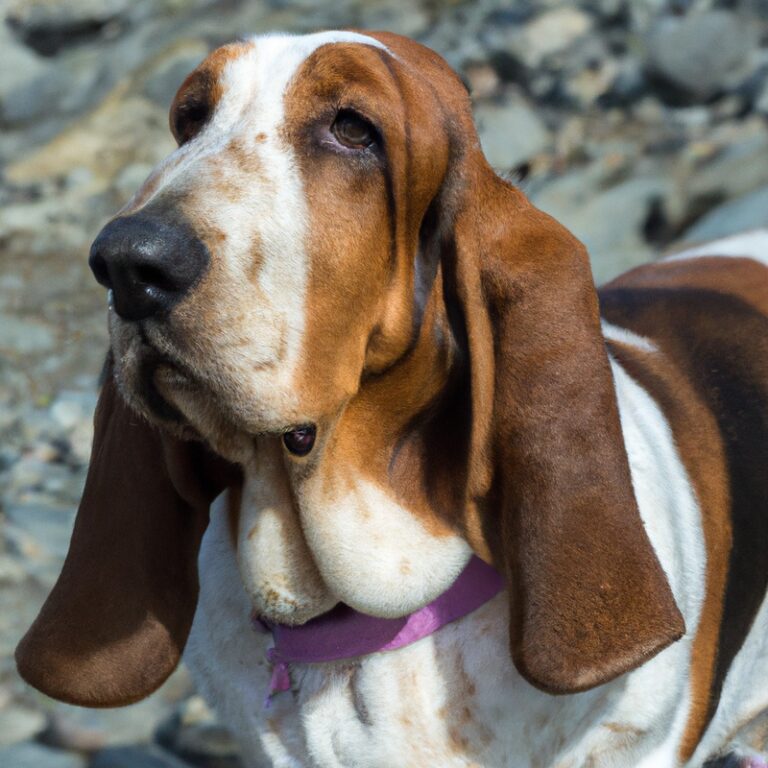How Do Basset Hounds Interact With Strangers?
Key Takeaways:
- Basset Hounds tend to be friendly and welcoming with strangers.
- They may approach strangers with curiosity and wagging tails.
- Basset Hounds may display a calm and gentle demeanor when meeting new people.
- Some Basset Hounds may be more reserved or cautious initially and take time to warm up to strangers.
Are you curious about how basset hounds, those adorable droopy-faced pups, interact with strangers?
Well, you’ve come to the right place! As a lifelong dog lover and proud owner of several basset hounds, I can tell you that these gentle creatures have their own unique way of approaching new people.
In this article, we’ll dig deep into the Basset Hound breed, exploring their appearance, temperament, and the factors that influence their interactions with strangers.
Whether you’re a basset hound owner or simply fascinated by these charming dogs, join me as we unravel the mysteries of how these four-legged friends navigate the world of strangers.
| Basset Hound | Interaction with Strangers |
|---|---|
| Friendly | Basset Hounds are generally friendly towards strangers. |
| Social | They enjoy meeting new people and are often very sociable. |
| Curious | Basset Hounds may approach strangers with curiosity and sniff them. |
| Gentle | They tend to be gentle in their interactions with strangers. |
| Caution | Some Basset Hounds may be cautious or shy around strangers initially, but warm up quickly. |
Understanding the Basset Hound Breed
Overview of Basset Hounds as a Breed
Basset Hounds are a unique breed known for their distinct appearance and charming personality.
They have a medium to large size and are easily recognizable by their long, droopy ears, wrinkled skin, and short legs.
Bassets are known for being friendly and gentle companions, often described as affectionate and good-natured.
They are generally sociable dogs and enjoy the company of both humans and other pets.
Basset Hounds are also known for their incredible sense of smell and are commonly used as tracking and scent detection dogs.
Overall, Basset Hounds make great family pets and are sure to bring joy and laughter to any home.
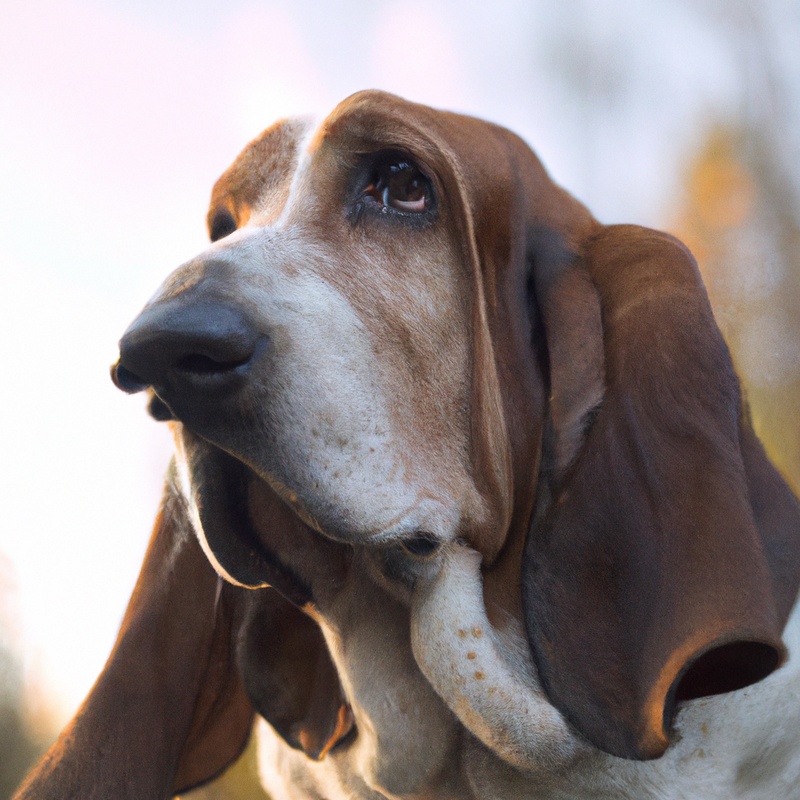
Appearance and Characteristics of Basset Hounds
Basset Hounds are known for their distinctive appearance and unique characteristics.
They have a long body with short legs, droopy ears, and a wrinkled face.
Their coats are usually short and dense, coming in a variety of colors, including tricolor and bicolour.
Basset Hounds are also known for their keen sense of smell, as they were originally bred for hunting and tracking.
They have a friendly and gentle temperament, and are generally good-natured and sociable dogs.
However, they can be stubborn at times and may require patient and consistent training.
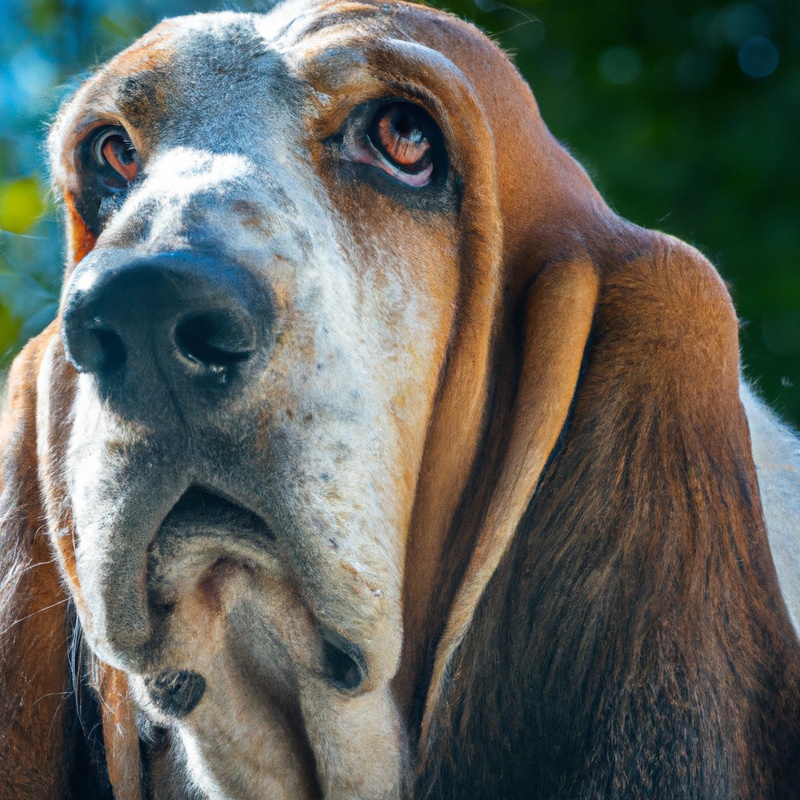
Temperament and Personality Traits of Basset Hounds
Basset Hounds have a unique temperament and personality. They are known for being friendly, gentle, and laid-back.
They typically get along well with people of all ages, including children and strangers.
Bassets are also known for their stubbornness, which can sometimes make training challenging. However, they are generally good-natured and make excellent family pets.
Bassets are loyal and affectionate, and they enjoy spending time with their human companions.
They are not aggressive by nature and are more likely to bark than bite. Overall, Basset Hounds have a charming and lovable personality that makes them a popular choice among dog lovers.
Basset Hounds and Strangers: An Introduction
Importance of Socialization for Basset Hounds
Socialization is vital for Basset Hounds. It helps them develop confidence and adaptability, making interactions with strangers easier.
By exposing them to various people, environments, and experiences from an early age, Basset Hounds learn to be comfortable in new situations.
This reduces anxiety and the likelihood of aggressive behavior towards strangers. Socialization should involve positive reinforcement and gradual exposure, ensuring that Basset Hounds have positive experiences with different people.
Lack of socialization can lead to fear, anxiety, and even aggression in Basset Hounds.
Common Behavior and Reactions of Basset Hounds towards Strangers
Basset Hounds are known for their friendly and sociable nature towards strangers.
They may greet new people with enthusiasm, wagging their tails and seeking attention.
However, each Basset Hound’s behavior may vary, and some may be more reserved or cautious.
It’s important to note that individual personalities and past experiences can influence how a Basset Hound reacts to strangers.
Providing early socialization and positive experiences can help them feel comfortable and confident around new people.
As with any dog, it’s crucial to approach new interactions with patience, respect, and gentle handling to foster a positive relationship.
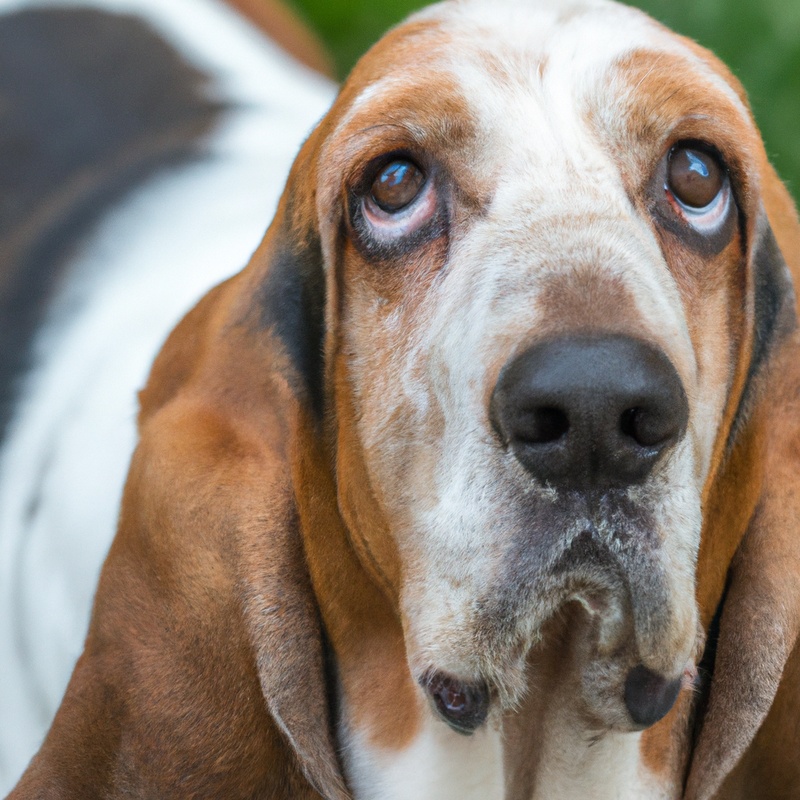
Factors Influencing Basset Hounds’ Interaction with Strangers
Genetics and Breed Predispositions
Genetics plays a significant role in shaping a Basset Hound’s behavior and interaction with strangers.
Basset Hounds are known for their friendly and laid-back nature, which is often influenced by their breed predispositions.
These dogs have been bred to be social and amiable, making them generally well-disposed towards strangers.
However, individual temperament and socialization are also important factors to consider.
Understanding and appreciating the genetic traits of Basset Hounds can help in developing effective strategies for positive interactions with strangers.
Early Life Experiences and Training
Early life experiences and training play a crucial role in shaping a Basset Hound’s behavior towards strangers. Positive socialization from a young age helps them develop confidence and trust.
Exposing them to various people, environments, and situations can prevent fear or aggression.
Additionally, consistent training and reinforcement of desired behaviors is important. Teaching basic commands and rewarding good behavior helps Basset Hounds understand how to interact appropriately with strangers.
Remember, early experiences and training lay the foundation for a well-rounded and friendly Basset Hound.
Tips for Positive Interaction between Basset Hounds and Strangers
Proper Socialization Techniques for Basset Hounds
Proper socialization is key to ensuring that your Basset Hound interacts positively with strangers. Here are some techniques to help you with this:
- Early exposure: Introduce your Basset Hound to different people and environments from a young age. This will help them become familiar with new experiences and build confidence.
- Positive reinforcement: Reward your Basset Hound with treats or praise when they behave calmly and positively around strangers. This will reinforce good behavior and create positive associations.
- Controlled introductions: Gradually introduce your Basset Hound to new people in controlled environments. Start with calm individuals and slowly progress to more active or noisy settings.
- Diverse experiences: Expose your Basset Hound to a variety of people of different ages, genders, and appearances. This will help them learn that strangers can be friendly and non-threatening.
- Training classes: Enroll your Basset Hound in obedience or socialization classes. This will allow them to interact with other dogs and people under the guidance of a professional trainer.
Remember, every Basset Hound is unique, so be patient and tailor your approach to their individual needs.
Training Methods to Improve Basset Hounds’ Behavior with Strangers
To improve your Basset Hound’s behavior with strangers, try these effective training methods:
- Positive reinforcement: Reward your Basset Hound with treats, praise, and affection when they exhibit calm and friendly behavior towards strangers.
- Socialization: Expose your Basset Hound to various people and environments from an early age. Gradually increase the level of interaction, ensuring positive experiences.
- Desensitization: Gradually expose your Basset Hound to situations and stimuli that trigger anxious or fearful behavior. Use positive reinforcement to help them associate these situations with positive outcomes.
- Obedience training: Teach your Basset Hound basic commands like “sit,” “stay,” and “come.” This will help them stay focused and responsive in distracting situations with strangers.
- Controlled introductions: Introduce your Basset Hound to new people in a controlled and calm manner. Use treats and positive reinforcement to build positive associations with strangers.
Remember, consistency and patience are key when training your Basset Hound.
Seek professional help if needed, and always prioritize your pet’s safety and well-being.
Handling Challenging Situations
Signs of Aggression or Fear in Basset Hounds
Basset Hounds, like any other dogs, can display signs of aggression or fear in certain situations.
It’s important to pay attention to these behaviors to ensure the safety of both your dog and others.
Signs of aggression may include growling, baring teeth, lunging, or biting.
On the other hand, signs of fear can include trembling, cowering, excessive barking, or attempts to escape.
If you notice any of these behaviors, it’s essential to seek professional help and address the underlying causes.
Don’t hesitate to consult a dog behaviorist or trainer who can provide guidance on managing your Basset Hound’s behavior.
Strategies for Managing Basset Hounds’ Reactions towards Strangers
Managing Basset Hounds’ reactions towards strangers requires a proactive approach. Some strategies include:
- Provide positive exposure: Gradually introduce your Basset Hound to new people, rewarding calm behavior with treats and praise.
- Use desensitization techniques: Gradually expose your dog to different strangers, starting from a distance and gradually decreasing it, while offering rewards for calm behavior.
- Practice obedience training: Teach your Basset Hound basic commands like “sit” and “stay,” which can help redirect their focus and provide a sense of control in unfamiliar situations.
- Use positive reinforcement: Reward desirable behavior when your Basset Hound interacts well with strangers, reinforcing positive associations.
- Seek professional help if needed: If your Basset Hound’s reactions towards strangers are severe or aggressive, consult a professional dog trainer or behaviorist for personalized guidance.
Remember, consistency and patience are key when managing your Basset Hound’s reactions towards strangers.
Creating a Safe and Comfortable Environment
Providing a Secure Home Base for Basset Hounds
Creating a secure home base for your Basset Hound is vital for their well-being. Here are some key steps to take:
- Provide a designated space: Set up a comfortable spot indoors where your Basset Hound can relax and feel safe. It could be a crate, a cozy bed, or a quiet corner.
- Establish boundaries: Train your Basset Hound to understand which areas of the house are off-limits. Use baby gates or closed doors to prevent access to certain rooms if needed.
- Provide mental stimulation: Basset Hounds are intelligent and prone to boredom. Offer interactive toys, puzzle feeders, and regular exercise to keep them mentally and physically engaged.
- Create a safe environment: Ensure that your home is free from hazards such as toxic plants, chemicals, or small objects that could be swallowed. Use childproof locks on cabinets if necessary.
- Stick to a consistent routine: Basset Hounds thrive on routine, so establish a daily schedule for feeding, exercise, playtime, and rest. This will help them feel secure and well-adjusted.
Remember, a secure home base is the foundation for a happy and content Basset Hound. Taking these steps will contribute to their overall well-being and create a safe haven for them to feel at ease.
Establishing Boundaries and Rules for Interactions with Strangers
Establishing clear boundaries and rules for interactions with strangers is essential for ensuring your Basset Hound’s safety and comfort.
Here are some tips to help you navigate these interactions:
- Start with socialization: Introduce your Basset Hound to different people from an early age. This exposure will help them become familiar with different faces and behaviors.
- Use positive reinforcement: Reward your Basset Hound for calm and appropriate behavior around strangers. This will reinforce good behavior and help them associate positive experiences with meeting new people.
- Set limits: Teach your Basset Hound to respect personal space by establishing boundaries. For example, you can discourage jumping or excessive barking when someone enters your home.
- Be a role model: Show your Basset Hound how to interact with strangers by demonstrating calm and friendly behavior yourself. Dogs often learn by observing their owners.
- Use leashes and barriers: In certain situations, such as crowded public spaces, it may be necessary to use leashes or barriers to maintain control and ensure the safety of your Basset Hound and others.
Remember, every Basset Hound is unique, so it’s important to consider their individual personality and comfort level when establishing boundaries and rules.
Seeking Professional Help
When to Consult a Dog Behaviorist or Trainer
If you’re experiencing challenges or concerns with your Basset Hound’s behavior towards strangers, it may be beneficial to consult a dog behaviorist or trainer.
These professionals have the expertise and experience to understand and address your dog’s specific needs.
Here are some situations when it might be a good idea to seek their guidance:
- Aggression: If your Basset Hound shows signs of aggression towards strangers, such as growling, snapping, or lunging, it’s important to seek professional help to manage and modify this behavior.
- Fear or anxiety: If your Basset Hound becomes fearful or anxious around strangers and displays avoidance behaviors, a behaviorist or trainer can help you develop strategies to build their confidence and comfort in these situations.
- Persistent challenges: If you’ve tried various training techniques or socialization methods but continue to face difficulties in improving your Basset Hound’s behavior with strangers, seeking professional guidance can provide fresh insights and tailored solutions.
Remember, consulting a dog behaviorist or trainer can be a valuable resource in helping you and your Basset Hound navigate any behavior issues and ensure a positive and safe interaction with strangers.
Potential Benefits of Professional Guidance in Dealing with Basset Hounds’ Behavior
Professional guidance can offer valuable insights and strategies to effectively deal with Basset Hounds’ behavior.
Here are some potential benefits:
- Expertise: Professionals have a deep understanding of dog behavior and can provide personalized advice tailored to your Basset Hound’s specific needs.
- Behavior Modification: With their knowledge and experience, professionals can help identify and address any behavioral issues, such as aggression or fear, and develop effective training plans.
- Socialization Techniques: Professionals can guide you on proper socialization techniques to help your Basset Hound feel more comfortable around strangers, reducing anxiety and potential behavioral problems.
- Training Methods: They can teach you effective training methods to improve your Basset Hound’s behavior when interacting with strangers, promoting positive and desirable responses.
- Support and Guidance: Professionals can offer support, guidance, and reassurance throughout the process, helping you feel more confident in addressing your Basset Hound’s behavior.
Remember, seeking professional help can greatly enhance your ability to manage and modify your Basset Hound’s behavior, leading to a more enjoyable and positive experience for both you and your pet.
Final Verdict
Understanding how Basset Hounds interact with strangers is essential for all owners of this unique breed. Basset Hounds are generally friendly and sociable, but early socialization and training are crucial for a positive interaction with strangers.
Factors such as genetics and early life experiences play a significant role in shaping their behavior.
By implementing proper socialization techniques and training methods, we can improve their behavior and ensure positive interactions. It is also important to recognize signs of aggression or fear and manage challenging situations appropriately.
Creating a safe and comfortable environment, along with seeking professional help when needed, can further enhance their interactions with strangers.
By following these guidelines, we can foster a harmonious relationship between Basset Hounds and strangers, ensuring a pleasant and rewarding experience for both parties.

